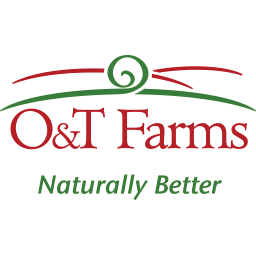The congressional journey to develop the 2018 Farm Bill moved to Kansas, where the Senate ag committee held its first hearing on Feb. 23. The Margin Protection Program for Dairy (MPP-Dairy) was again a featured topic.
The field hearing was hosted by U.S. Sen. Pat Roberts (R-Kansas), chairman of the U.S. Senate Committee on Agriculture, Nutrition and Forestry. He was joined by Sen. Debbie Stabenow (D-Michigan), the committee’s ranking member, who will host a similar hearing in her state later this spring.
Roberts said the path to the 2018 Farm Bill will be different than the one leading to creation of the 2014 version. While agricultural producers were receiving high commodity prices in 2014, farm prices have been much lower. Policy development will also be guided by national debt exceeding $19 trillion, he said.
Stabenow said dairy will be one area getting close scrutiny.
Among panelists providing input at the hearing was Kansas dairy farmer Lynda Foster.
Foster, a third-generation farmer who owns the 170-cow Foster Dairy with her husband and son near Ft. Scott, Kansas, urged Senate ag committee members to tackle shortcomings in MPP-Dairy this year, instead of waiting for the program to expire in 2018. She testified on behalf of her cooperative, Dairy Farmers of America, as well as the National Milk Producers Federation, of which DFA is a member.
“Dairy farmers deserve better” than the current program, Foster said. “We need Congress to act swiftly this year and make the necessary changes in order for our industry to be able to protect ourselves from the bad year that could arrive at any time, even in years where experts are predicting higher margins,” she said.
MPP-Dairy, designed to assist farmers during periods of distressed milk prices or high feed costs, has failed to provide the level of protection envisioned in its original form. This has resulted in decreased participation in the program and dissatisfaction among dairy farmers across the country, Foster said.
“All we are seeking is a program that provides a safety net for dairy farmers when they need it most – something that delivers on the risk management promises dairy leaders and Congress committed to,” said Foster. “In order to do that, we must make adjustments to the program.”
Foster said NMPF’s current effort to change the MPP-Dairy includes restoring the formula for calculating average feed costs to its original form. During passage of the 2014 Farm Bill, last-minute congressional adjustments to the formula cut the feed cost factor used to determine average income margins by 10 percent, making the program less useful for dairy farmers.
“Like many farmers, I was supportive of the MPP and thought it would finally give our farm a tool to manage the extreme volatility we had experienced in the market. In the first year, I, like many others, signed up for the program and purchased supplemental coverage at the $6 (per hundredweight) level.”
Like many other dairy farmers, she quickly became disenchanted with the program.
“Since that first year, I have only enrolled at the minimal $4 (per hundredweight) margin level, which to be perfectly honest, is meaningless,” Foster said. “MPP remains the right model for the future of our industry, but changes are needed if Congress wants to provide relevant tools to our sector.”
“We are not asking for a program that provides a profit to producers, neither do we want a program that will enhance or incentivize production,” Foster said. “However, the changes made to the original MPP by Congress diluted the real costs farmers face every day and diluted the effectiveness of the program. If MPP was more reflective of the true costs I saw on my farm, I believe active participation would rise dramatically.”
Foster discussed the critical need for proactive immigration reform policies to help address farm labor demands. Citing a 2015 report prepared by NMPF and Texas A&M University, Foster said 51 percent of all dairy farm workers are foreign-born, and losing that labor pool would be devastating to the entire dairy industry, from farm to grocery store shelf. In part to address her farm’s labor needs, Foster Dairy has installed robotic milkers.
“This was the only solution we could come up with – but it is expensive and complex,” Foster said. “I hope the investment is worth it in future net savings. Additionally, my answer is not the answer for all dairy farmers.”
She urged Congress to address immigration reform “in a way that addresses agriculture’s needs for a legal and stable workforce.”
With the sizeable impact exports have on the dairy economy, Foster urged Senate ag committee members to protect progress made when negotiating future agreements or reassessing existing ones, like the North American Free Trade Agreement (NAFTA).
Foster, who is in her final year as a member of the National Dairy Research and Promotion Board, encouraged committee members to pursue policies expanding milk offerings in the school lunch program.
Read also: MPP-Dairy scrutinized during House ag committee hearing ![]()

-
Dave Natzke
- Editor
- Progressive Dairyman
- Email Dave Natzke





